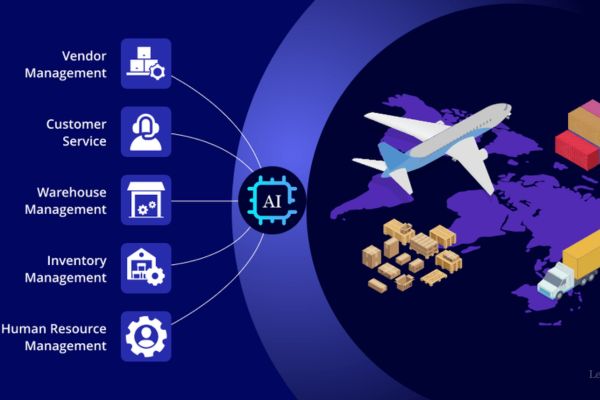Fuel demand in India is rising at an unprecedented pace, with over 90,000 fuel stations catering to a rapidly growing population and an expanding industrial sector. Yet, despite its scale, the industry still faces challenges with supply chain inefficiencies, fuel shortages, overstocking, and unpredictable demand fluctuations, especially on highways, remote locations, and industrial zones. These lead to significant financial losses and a losing customer base.
For decades, predicting fuel demand and optimizing supply chains relied on manual stock assessments. However, in a modern era where everything is run by technology, people are moving faster than ever, and data and automation are transforming every industry, traditional approaches are proving insufficient.
To efficiently and sustainably meet this growing fuel demand, fuel stations need smarter, real-time solutions to anticipate fluctuations, optimize orders, minimize waste, and maximize profit-earning capacity. This is where Artificial Intelligence (AI) and the Internet of Things (IoT) are stepping in, revolutionizing fuel logistics through predictive intelligence and automated decision-making.
How are AI and IoT transforming Fuel Supply Management?
The integration of AI and IoT in fuel management is already transforming global energy logistics, and India is no exception. AI-driven demand forecasting is helping fuel providers predict stock requirements according to seasonal demand and changing consumer preferences for diesel, fuel, CNG, or even electric vehicles, preventing stockouts and unnecessary overstocking.
With the help of AI-powered models and platforms, fuel providers and distributors can better understand their historical sales data and analyze real-time fuel consumption trends and external factors like weather conditions and traffic congestion to stay ahead of demand fluctuations.
While AI predicts what’s about to happen, IoT-enabled smart sensors installed in fuel storage tanks allow real-time tracking of fuel levels—enhancing operational efficiency and reducing losses. Globally, companies like Shell have successfully adopted AI-driven analytics and IoT-powered tracking systems to optimize fuel distribution and improve logistics management.
To better predict and optimize, utilizing AI and IoT together can create a seamless, automated system where fuel stations are restocked exactly when needed. This not only takes away the pain of doing things manually, but also eliminates inefficiencies and ensures that fuel is optimally allocated and distributed.
What are the benefits of AI and IoT in Fuel Supply Chain Management?
The integration of AI and IoT in fuel logistics is not just an upgrade from the current state; it’s a complete game changer. Here are some benefits that can lead the energy sector’s way:
Enhanced demand forecasting and inventory optimization: AI-powered predictive models analyze vast historical datasets to anticipate demand weeks in advance with better accuracy, preventing shortages and overstocking.
Real-time monitoring and automated alerts: IoT sensors continuously track fuel stock levels, storage conditions, and delivery schedules, reducing manual errors and improving operational efficiency. These automated alerts reduce manual efforts and dependency on human decision-making.
Faster, data-driven decision-making: AI’s deep insights into consumption patterns and inefficiencies enable businesses to manage fuel supply proactively, avoiding disruptions.
Sustainability and reduced environmental impact: Smarter fuel distribution minimizes unnecessary transport trips, reducing carbon emissions and fuel wastage.
These advantages make AI and IoT an essential investment for future-proofing fuel supply chains.
Does India’s fuel industry need this shift?
Despite being the world’s third-largest oil consumer, much of India’s fuel sector still relies on outdated, manual processes, which cost the industry crores annually in lost revenue and operational mismanagement. According to McKinsey, early adopters of AI-enabled supply chain management can achieve a 15% reduction in logistics costs, 35% lower inventory levels, and a 65% improvement in service levels, which could improve the balance sheet of the industry while minimizing losses.
In India, recent fuel shortages in major cities like Delhi, Mumbai, and Bengaluru have highlighted the risks of misaligned supply chains. The 2022 Sri Lanka fuel crisis further demonstrated the catastrophic consequences of poor demand forecasting and inefficient supply chain planning. While India is not at risk of such a crisis anytime soon, it’s always best to stay ahead of the challenges, and fuel companies modernizing will give them an upper hand as and when there are any disruptions in the ecosystem.
The Road Ahead
Given that the majority of mobility and industrial functions rely on fuel, startups and government bodies are highly invested in introducing innovations that could disrupt the way things are done. They are testing new technologies, such as AI-driven demand planning that integrates machine learning and new data sources, IoT-powered real-time inventory management that ensures optimal stock levels, and digital twins that create virtual models of supply chains for dynamic margin optimization.
The future of fuel logistics lies in predictive intelligence, real-time monitoring, and automated decision-making. Fuel suppliers that embrace AI and IoT will gain a competitive edge by reducing costs, improving efficiency, and ensuring uninterrupted supply chains.
However, the key challenge lies in choosing the right solution. AI and IoT-based systems must be tailored to specific business needs. While the first step is to adopt these technologies, the second and most crucial step is to invest in workforce training and infrastructure upgrades, as implementation can be complex and resource-intensive.
Despite these challenges, one thing is sure: AI and IoT are no longer optional for fuel supply chains—they are business imperatives. Companies like IOCL, BPCL, and HPCL are already piloting AI-powered analytics and IoT-driven logistics, recognizing that data-driven automation is the future.

Mr. Vaibhav Kaushik, Co-founder & CEO of Nawgati

















